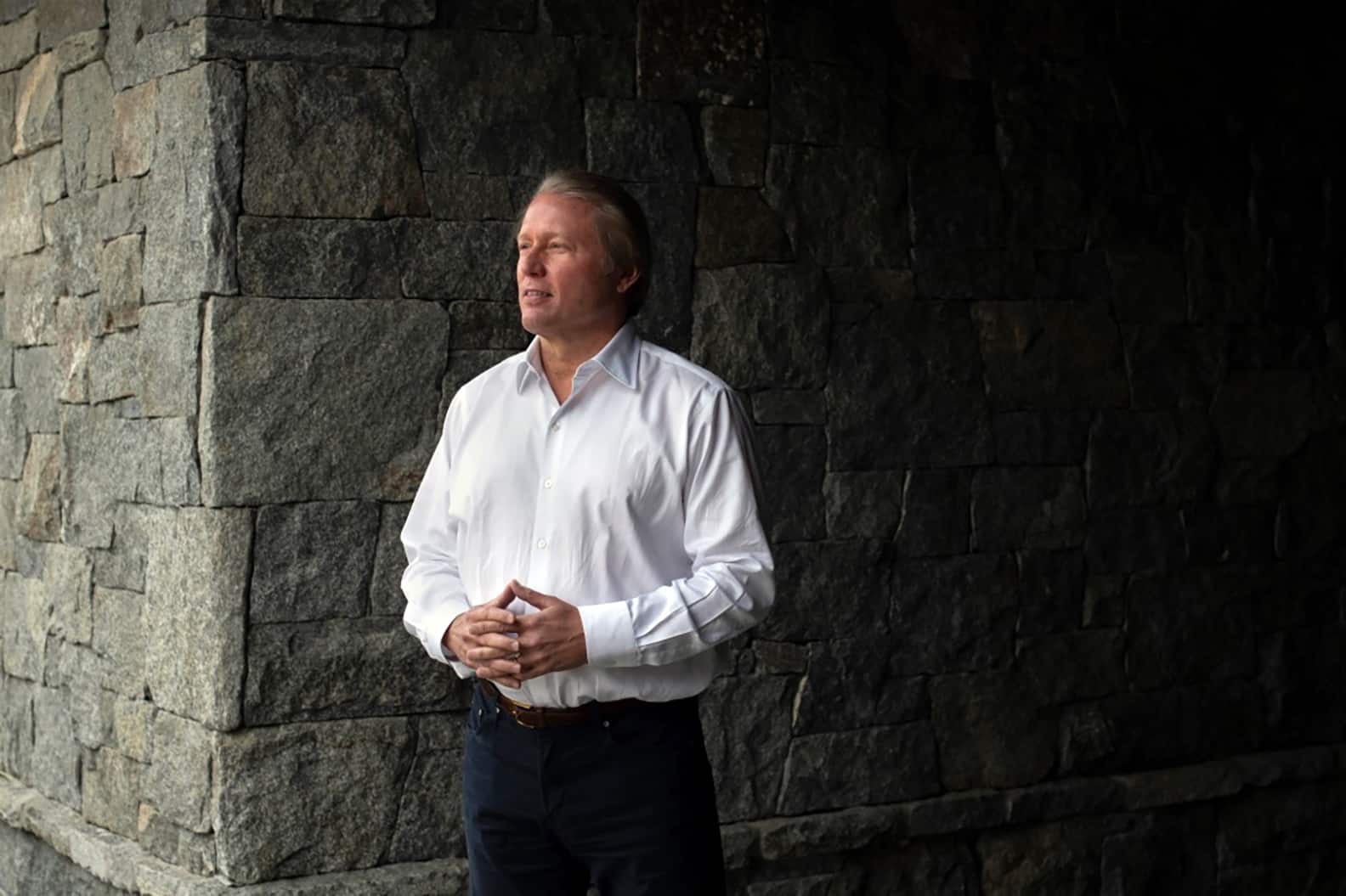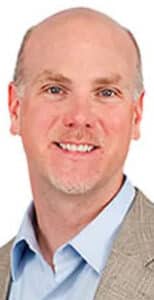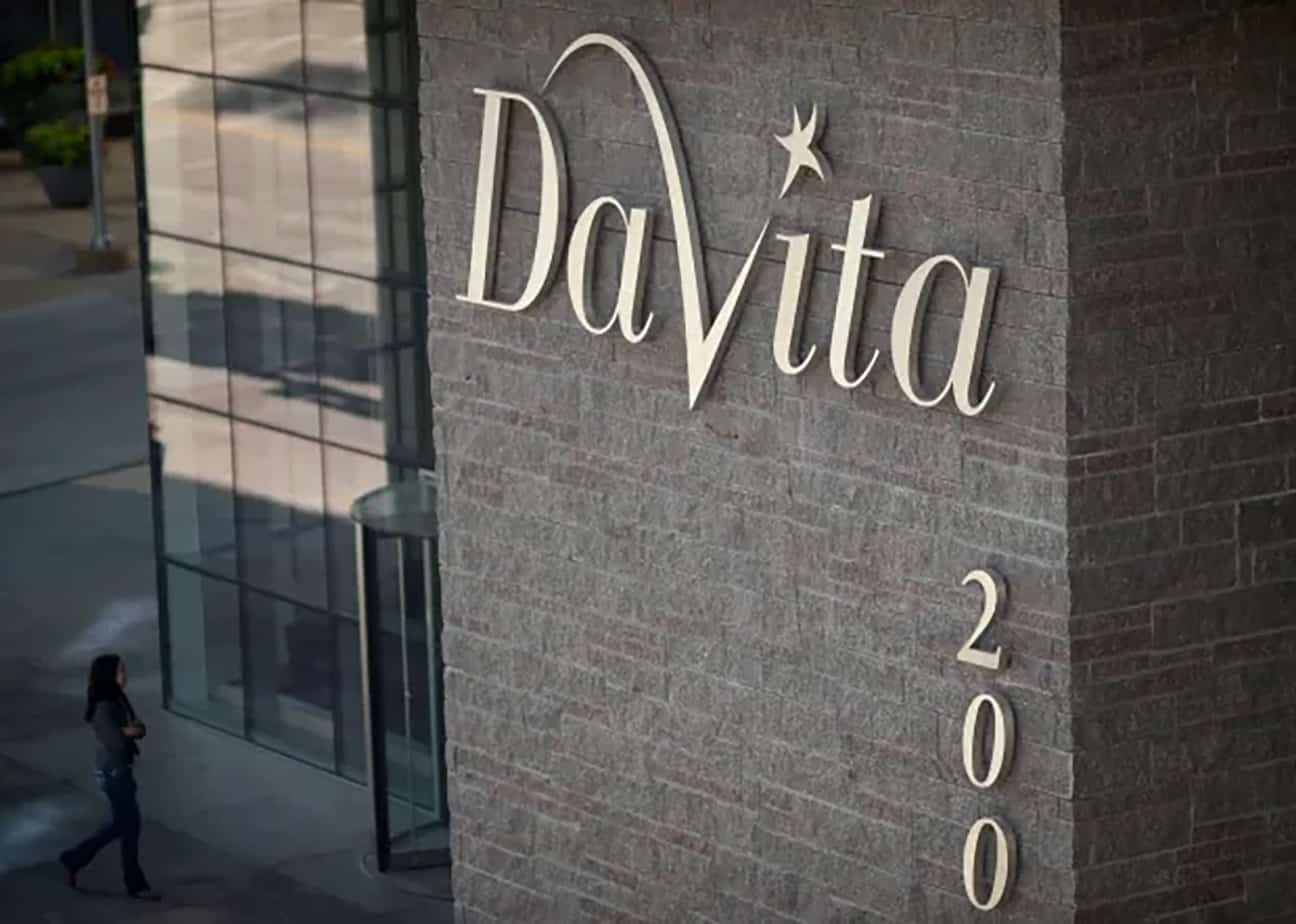
Kent Thiry, former CEO of the dialysis giant DaVita, faces up to 30 years in prison if convicted on all three counts of conspiracy in restraint of trade to allocate employees. (Rachel Woolf/Kaiser Health News)
A protege of former DaVita CEO Kent Thiry testified Friday that Thiry had the power to veto the hiring of DaVita executives seeking a job at the protege’s company under an agreement between the two that federal prosecutors claim was a criminal restriction on the free market.
Rich Whitney, a former DaVita executive, is CEO of California-based health care company Radiology Partners. In 2013, an angry Thiry learned that Whitney was recruiting DaVita’s executives to work at Radiology Partners.
To placate Thiry, Whitney agreed to not recruit DaVita employees who weren’t already looking for another job and to seek permission from Thiry before hiring executives trying to move from DaVita to Radiology Partners, Whitney testified.
Prosecutors and defense attorneys debated the effect that had on several employees, including Guy Seay, an executive at DaVita who Radiology Partners wanted to hire as chief financial officer in 2014. Emails show that Whitney asked Thiry for permission before talking to Seay.
“Neither I nor anyone on my team has talked to Guy about this, nor will we without your buy-in,” Whitney wrote to Thiry in an email presented by prosecutors Friday. He later added, “You may hate this idea and if that is the case we will never bring it up again and we will move on.”
In a downtown Denver courtroom, Whitney was asked, “Does this email reflect your understanding that you were giving Mr. Thiry veto power or a right of first refusal over Mr. Seay?”
“Yes,” he responded. “I was asking for permission to talk to him.”
Federal prosecutors say that agreement — and similar agreements between Thiry and two other health care CEOs —were criminal violations of anti-monopoly laws. Thiry and DaVita each face three counts of conspiracy in restraint of trade to allocate employees. Convictions on all counts could send Thiry to prison for up to 30 years and cost DaVita $300 million.
Emails show Thiry asked Whitney to hold off speaking to Seay until Thiry could talk to his employee. Two months later, Whitney’s plan to hire Seay fell through and Seay remained at DaVita. Juanita Brooks, a defense attorney for Thiry, framed this as Seay weighing his options and making the best decision after a fair competition between DaVita and Radiology Partners.
“Both companies were competing for Guy Seay?” Brooks asked.
“Yes,” Whitney said.
Brooks later asked, “Is it true, sir, that you never felt there were people at DaVita that you wanted to hire but could not because of the agreement?”
“I can’t think of any examples where that would have been the case,” he said.
About 30 DaVita employees have been hired by Radiology Partners since Thiry and Whitney made their agreement, the latter testified.
Defense attorneys argue that is proof the agreement did not restrict employees from moving between companies. Prosecutors argue that is a small percentage of the thousands of employees that Radiology Partners has hired since 2013, evidence the agreement harmed employees such as Seay and restricted the free market.
Whitney testified on behalf of the government as part of an agreement that shields him from prosecution. He often sounded uncomfortable on the witness stand and repeatedly referred to Thiry as a mentor and a valuable friend who made him the businessman that he is today.
“Is testifying against him personally painful?” he was asked at the conclusion of his testimony.
“Yes,” he said.
Whitney was the only witness to testify Friday, the fifth day of the trial. U.S. District Court Judge Brooke Jackson adjourned the court early, shortly after 1 p.m., so that a juror with Colorado Rockies tickets could attend the game with his son. The trial is expected to end next week.

Kent Thiry, former CEO of the dialysis giant DaVita, faces up to 30 years in prison if convicted on all three counts of conspiracy in restraint of trade to allocate employees. (Rachel Woolf/Kaiser Health News)
A protege of former DaVita CEO Kent Thiry testified Friday that Thiry had the power to veto the hiring of DaVita executives seeking a job at the protege’s company under an agreement between the two that federal prosecutors claim was a criminal restriction on the free market.
Rich Whitney, a former DaVita executive, is CEO of California-based health care company Radiology Partners. In 2013, an angry Thiry learned that Whitney was recruiting DaVita’s executives to work at Radiology Partners.
To placate Thiry, Whitney agreed to not recruit DaVita employees who weren’t already looking for another job and to seek permission from Thiry before hiring executives trying to move from DaVita to Radiology Partners, Whitney testified.
Prosecutors and defense attorneys debated the effect that had on several employees, including Guy Seay, an executive at DaVita who Radiology Partners wanted to hire as chief financial officer in 2014. Emails show that Whitney asked Thiry for permission before talking to Seay.
“Neither I nor anyone on my team has talked to Guy about this, nor will we without your buy-in,” Whitney wrote to Thiry in an email presented by prosecutors Friday. He later added, “You may hate this idea and if that is the case we will never bring it up again and we will move on.”
In a downtown Denver courtroom, Whitney was asked, “Does this email reflect your understanding that you were giving Mr. Thiry veto power or a right of first refusal over Mr. Seay?”
“Yes,” he responded. “I was asking for permission to talk to him.”
Federal prosecutors say that agreement — and similar agreements between Thiry and two other health care CEOs —were criminal violations of anti-monopoly laws. Thiry and DaVita each face three counts of conspiracy in restraint of trade to allocate employees. Convictions on all counts could send Thiry to prison for up to 30 years and cost DaVita $300 million.
Emails show Thiry asked Whitney to hold off speaking to Seay until Thiry could talk to his employee. Two months later, Whitney’s plan to hire Seay fell through and Seay remained at DaVita. Juanita Brooks, a defense attorney for Thiry, framed this as Seay weighing his options and making the best decision after a fair competition between DaVita and Radiology Partners.
“Both companies were competing for Guy Seay?” Brooks asked.
“Yes,” Whitney said.
Brooks later asked, “Is it true, sir, that you never felt there were people at DaVita that you wanted to hire but could not because of the agreement?”
“I can’t think of any examples where that would have been the case,” he said.
About 30 DaVita employees have been hired by Radiology Partners since Thiry and Whitney made their agreement, the latter testified.
Defense attorneys argue that is proof the agreement did not restrict employees from moving between companies. Prosecutors argue that is a small percentage of the thousands of employees that Radiology Partners has hired since 2013, evidence the agreement harmed employees such as Seay and restricted the free market.
Whitney testified on behalf of the government as part of an agreement that shields him from prosecution. He often sounded uncomfortable on the witness stand and repeatedly referred to Thiry as a mentor and a valuable friend who made him the businessman that he is today.
“Is testifying against him personally painful?” he was asked at the conclusion of his testimony.
“Yes,” he said.
Whitney was the only witness to testify Friday, the fifth day of the trial. U.S. District Court Judge Brooke Jackson adjourned the court early, shortly after 1 p.m., so that a juror with Colorado Rockies tickets could attend the game with his son. The trial is expected to end next week.


